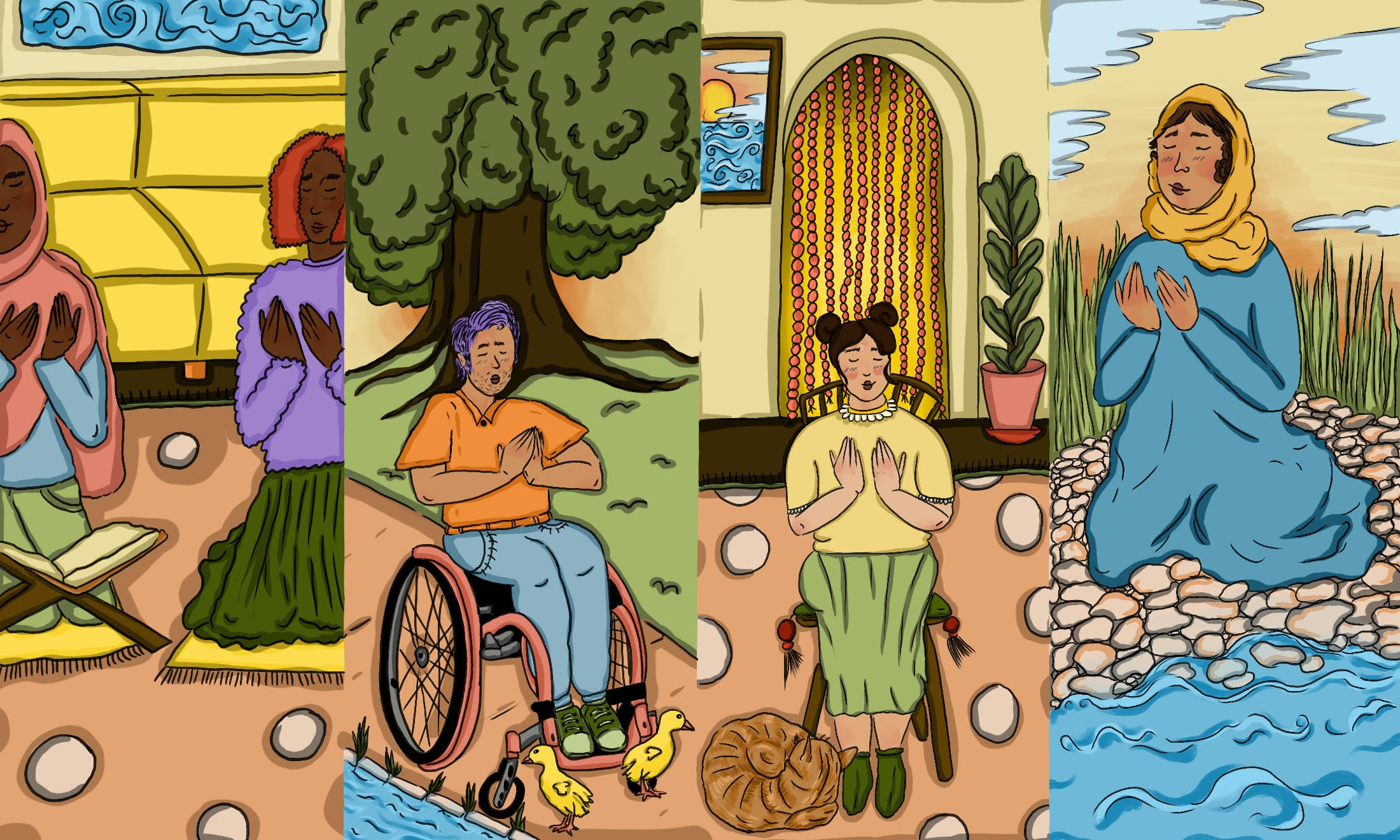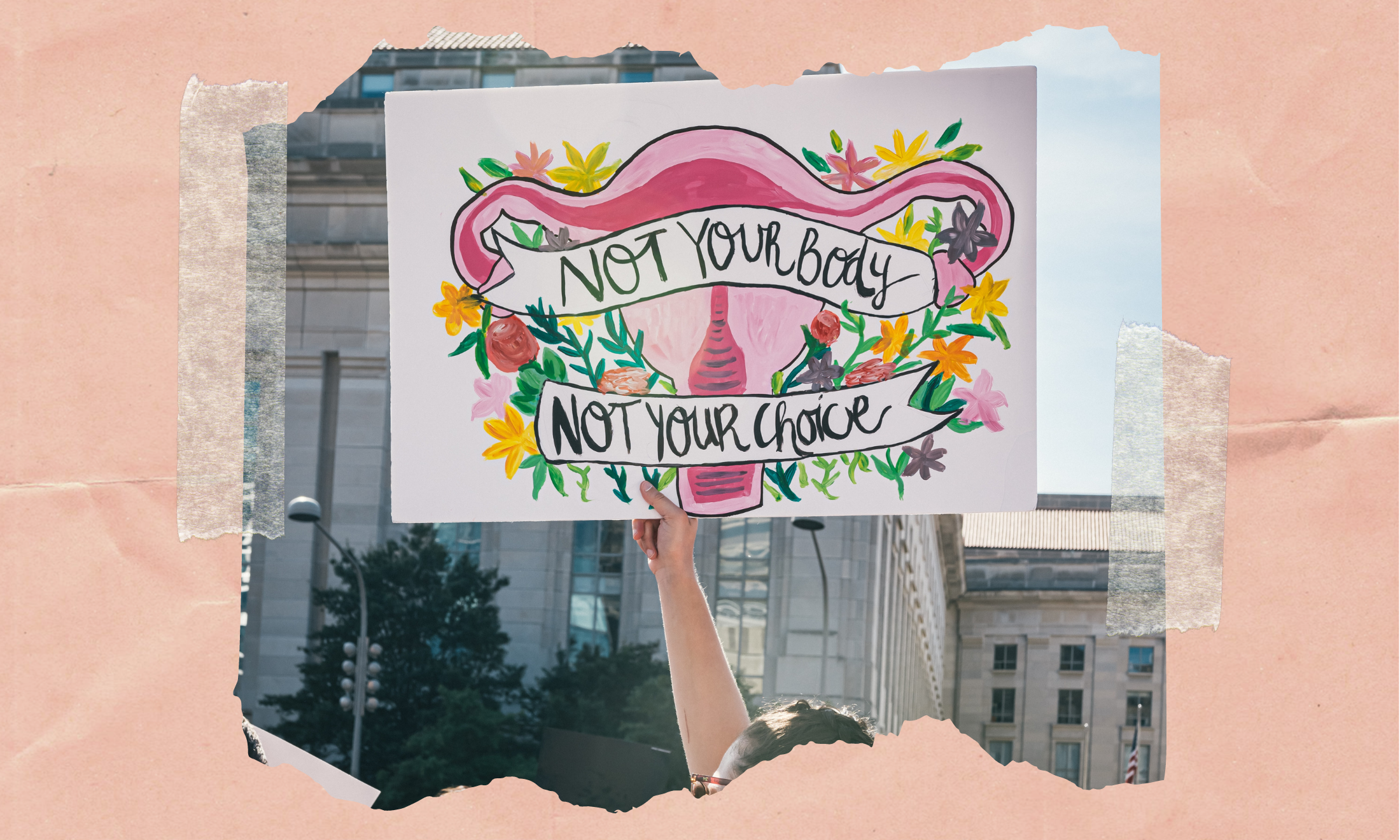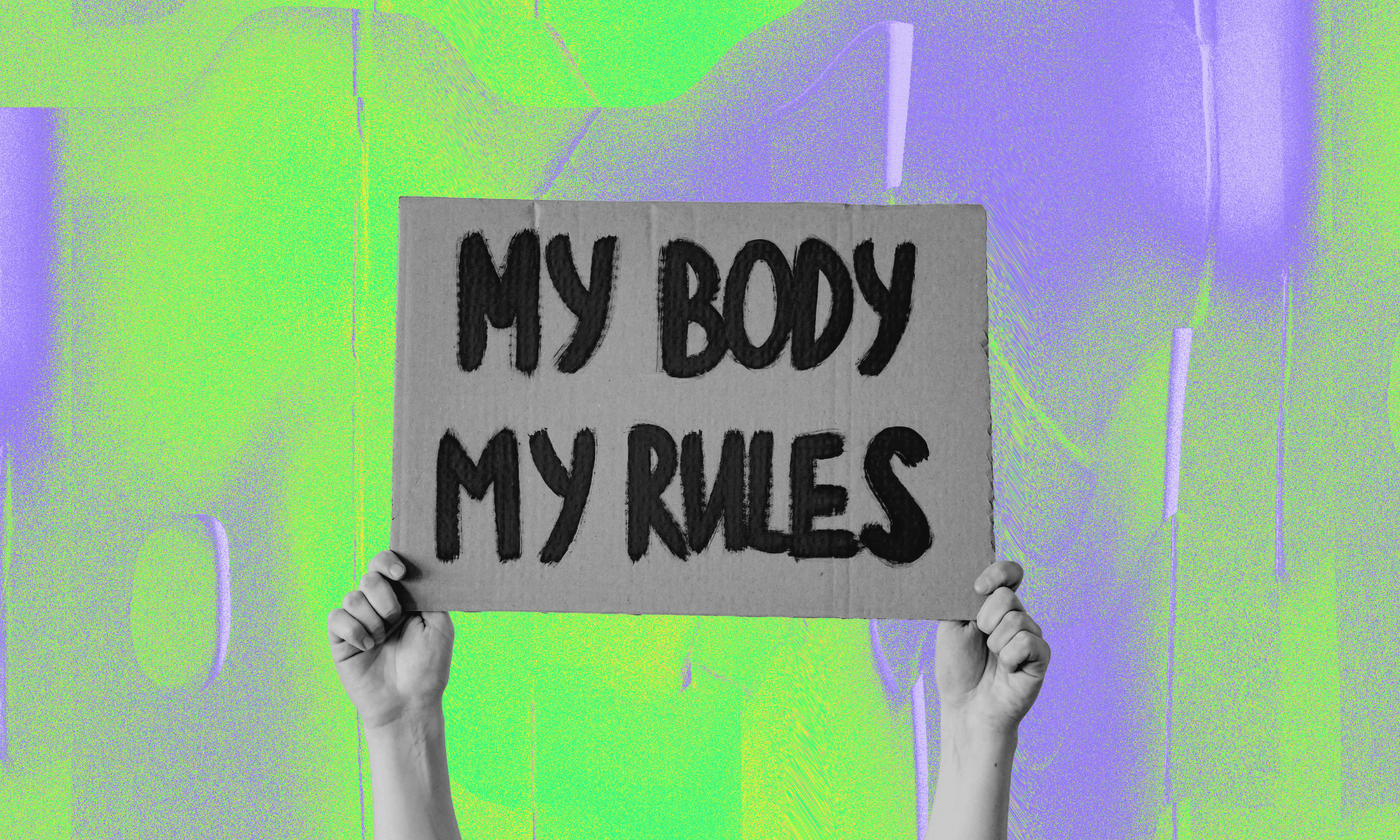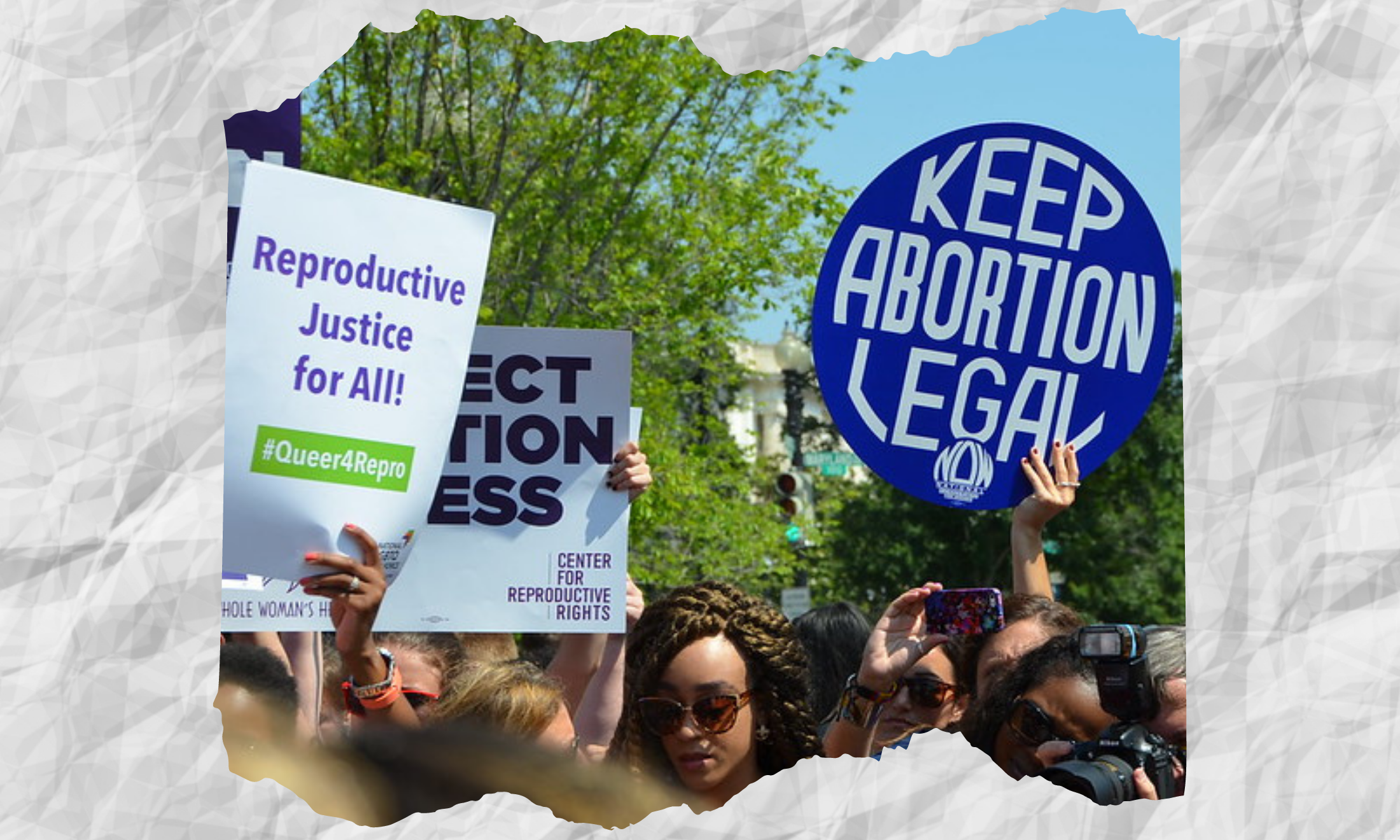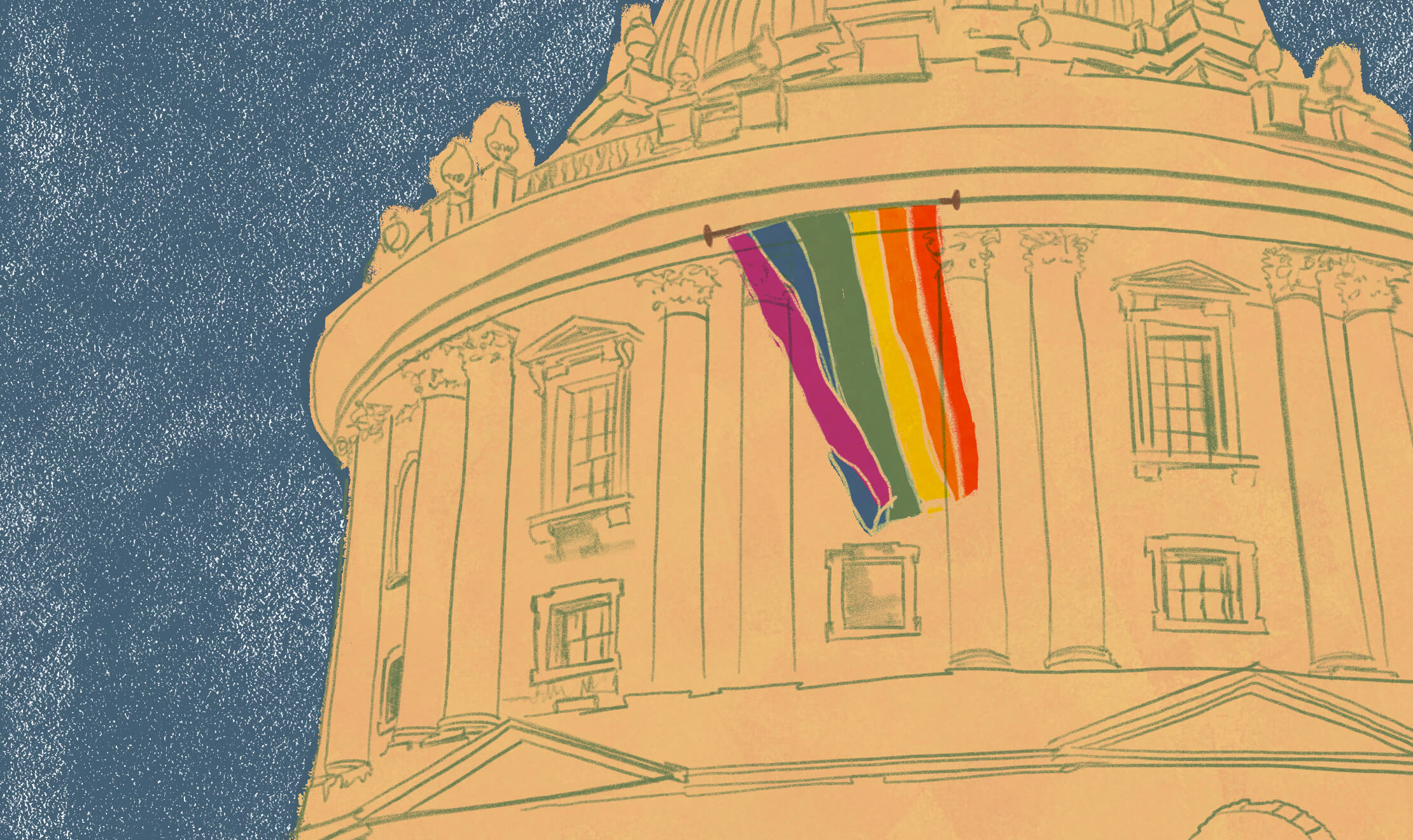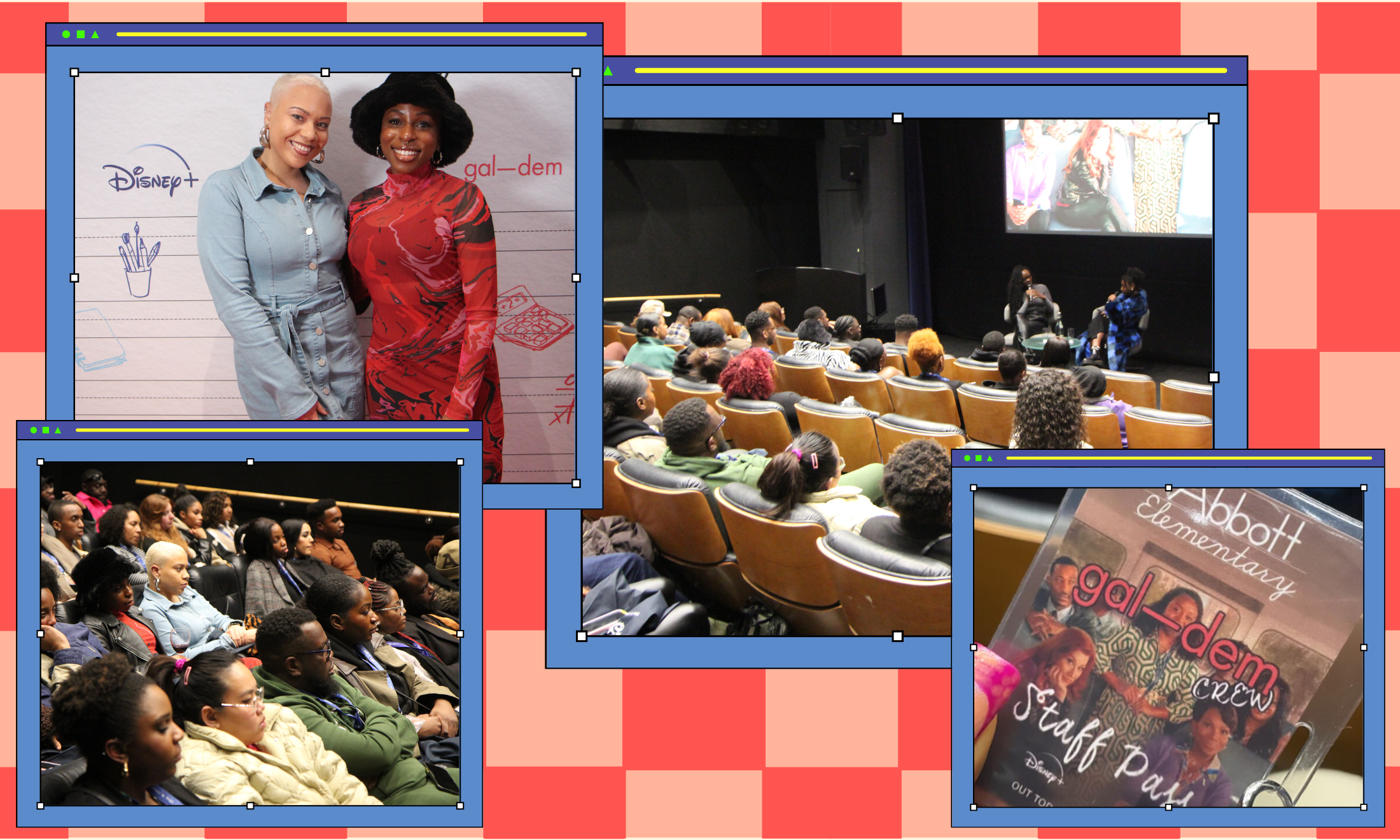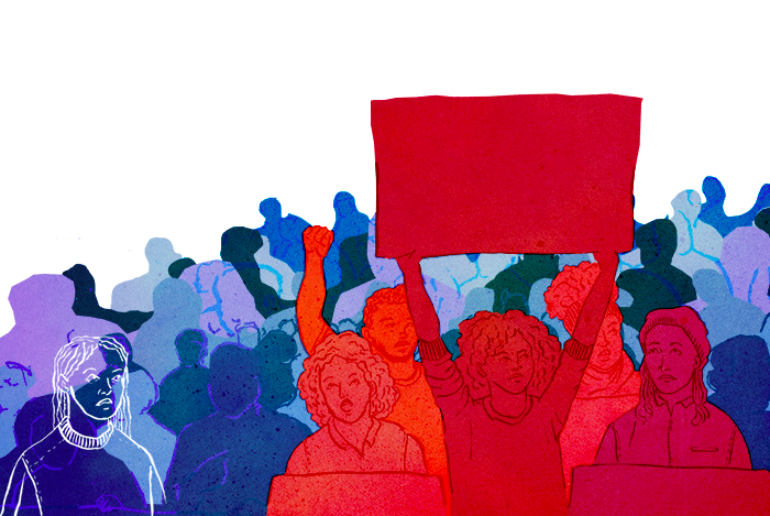
Today, Northern Ireland’s abortion and equal marriage win marks the start of a hopeful future
Katie Goh
22 Oct 2019
Illustration by Rumbidzai Marilyn Savanhu
Two years ago, nearly to the month, I wrote about the ongoing fight for abortion access for gal-dem. Then, on both sides of the border, abortion was illegal, a fact that came as a surprise to many mainland Brits unaware that although abortion was made legal in the UK in 1967, that legislation didn’t apply to Northern Ireland. In the news at the time, a young woman in Belfast had been reported to the police by her flatmates for obtaining abortion pills, a mother was on trial for buying similar pills for her 15-year-old daughter. Between then and now, over three thousand people have made the journey across the Irish Sea to have abortions in mainland Britain.
A lot has changed since then. In 2018, after intense campaigning on all sides, the Republic of Ireland voted overwhelmingly to overturn the country’s abortion ban, echoing the similar landslide public vote in 2015 that legalised same-sex marriage in Ireland. And now, as of midnight last night, abortion will be decriminalised and same-sex marriage legalised in the north of Ireland. Legal cases prosecuting those who have procured abortion pills will be dropped and safe, legal and local abortion procedures are to be made available in early 2020.
Last night was something that many in Northern Ireland – myself included – hoped for but thought improbable. Stormont, Northern Ireland’s government, has been suspended for the last two years after a power-sharing disagreement between the Democratic Unionist Party (DUP) and Sinn Fein. The potential for any legislation to move forward came to a screeching standstill and since then, Northern Ireland, the country that will arguably be most affected by Brexit, has had no effective or working governing body.
“Over three thousand people have made the journey across the Irish Sea to have abortions in mainland Britain”
So, while pro-choice campaigners celebrated in solidarity with the Republic voting to make abortion illegal last year, it also felt bittersweet. The south might be moving forward, but stuck between a devolved government and Westminster (which historically hasn’t acted in Northern Ireland’s best interests), it felt like the north was being left behind. “The north is next” became the rallying cry for decriminalisation, as grassroots organisations and charities continued to financially and emotionally support those seeking abortions in mainland Britain.
Early this year came a breakthrough when Labour MPs Stella Creasy and Conor McGinn tabled an amendment, arguing that because Northern Ireland’s government was devolved, the issue of abortion and same-sex marriage fell on Westminster. MPs voted in the majority to legalise same-sex marriage and decriminisalise abortion.
While the legislation may have come from Westminster, it’s the activist-led, grassroots movements that pushed for this change. The criminalisation of abortion disproportionally impacts working-class, rural and migrant communities, and like with the Repeal the Eighth campaign, Northern Irish pro-choice activists have been conscious of the need to run an inclusive and community-focused movement. Organisations, like Alliance for Choice, do the groundwork, tirelessly supporting those seeking abortions and working overtime to educate the public on abortion laws and procedures. At a time when activist movements like Extinction Rebellion are being criticised for being inaccessbly white and middle-class, they could do well to look at the strategies of Irish pro-choice campaigners who have led one of the most radical and successful grassroots movements in decades.
“When you grow up in a place where your body and identity are criminalised and made illegal, it can affect how you view yourself and others around you”
Growing up post-Troubles in Northern Ireland, I’ve been part of a generation that has increasingly voiced its frustration with the country’s government and archaic laws that have turned lives and bodies into political vessels. The lack of empathy or care from politicians had turned the place I was born, raised and lived for 18 years into somewhere that felt hostile and unwelcome, and that didn’t reflect the people I knew. In fact, Northern Ireland’s theocratic laws in no way reflect its people’s stance. A 2018 poll found that 76% of people in Northern Ireland support the legalisation of same-sex marriage and a 2019 report found that 89% supported decriminalisation.
Undoubtedly, legislation impacts culture. A country’s laws can somewhat act as its moral compass – when you grow up in a place where your body and identity are criminalised and made illegal, it can affect how you view yourself and others around you. It’s taken me, and many other people I know who grew up in Northern Ireland, years to undo the internalised homophobia and misogyny drilled into us by fear-mongering politicians. Many people have not had this opportunity or privilege. I hope that Northern Ireland’s high suicide rates, particularly those in the LGBTQ+ community, will fall as a result of this change in legislation.
Laws can change overnight but culture can take a little longer. Northern Ireland needs time to unlearn what has been distilled. But I’m feeling optimistic. In four years, I’ve seen the island of Ireland become united in its progression of human rights. We, from the grassroots organisations to the teenagers who feel like they might be able to come out now, did that.

